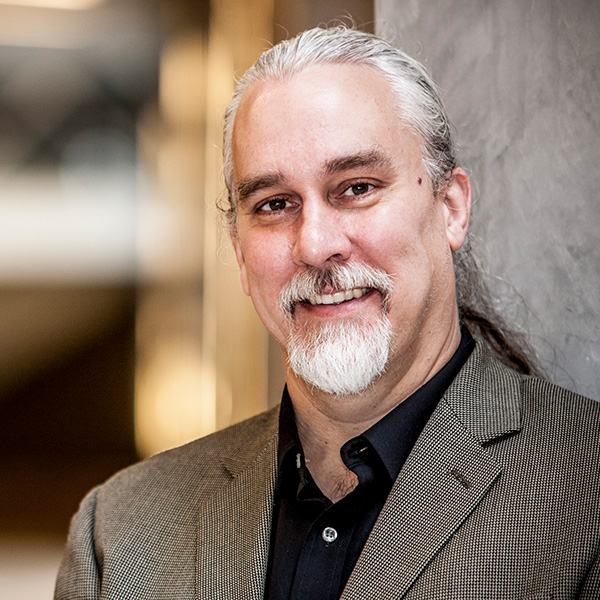Building human capacity
FLEET is building Australia’s scientific capacity by attracting and retaining, from within Australia and abroad, researchers of high international standing as well as the most promising research students.
From its original 64 members, FLEET has built up to 336 high-quality researchers across a range of research areas, training a new generation of leaders at the forefront of modern condensed-matter physics, materials science, and nanotechnology.
FLEET’s membership includes two ARC Laureates, eight Future and 11 DECRA Fellows. Of FLEET’s higher degree by research (HDR) students, 84% hold an Australian Government Research Training Program Scholarship or receive a university International Postgraduate Research Scholarship.

FLEET has a clear and systematic strategy to attract and retain the best and brightest minds to join the Centre.
Prof Michael Fuhrer FLEET Director
The Centre’s multi-institutional and multidisciplinary nature provides unique opportunities for ECRs and students to broaden their horizons and expand their understanding of the research environment.
FLEET is currently training 49 postdoctoral researchers and 56 HDR students. Another 47 postdoctoral researchers and 36 PhD graduates have completed training with FLEET and are now pursuing their own research directions at international research institutions. Among these, 25% are using their STEM skills in industry and government agencies. FLEET celebrates its alumni community, keeping current membership appraised of alums’ ongoing career journeys in internal communications (see Lasting impact: FLEET alumni).
Believing that diverse teams do better science, and that an equitable and diverse work environment leads to a more effective team, FLEET is addressing the low representation of women in physics and materials science through recruitment and career-support measures and by improving the work environment. The Centre’s ambitious goal to achieve 30% representation of women at all levels has driven innovative approaches in recruitment, including the Women in FLEET Fellowship, the first of its kind in ARC Centres of Excellence (see 2021 progress and details in Equity).
FLEET support for researchers with caring responsibilities has included providing onsite childcare at Centre-organised events so that members don’t have to compromise between research training opportunities and their carer’s responsibilities.
In addition to improving the gender balance, FLEET initiatives towards increased participation in STEM by under-represented groups include the new Diversity in FLEET Fellowships.
FLEET provides high-quality postgraduate and postdoctoral training environments for the next generation of researchers.
Knowing that most STEM PhD graduates end up in careers outside academia, FLEET helps students develop a diverse skills base to enhance their future job opportunities, ensuring readiness for whichever career path they pursue.
Members have access to a tailored education and training program that emphasises not only technical skills but also transferable skills in all stages of members’ career development, building future leaders in science and technology from academia to industry, in Australia and internationally.
The Centre’s 50 workshops have offered a range of different research and professional development opportunities, from advanced physics to building skills in communication, presenting scientific results or creating visuals to enhance the impact of their research outputs.
Notable examples include the Summer School at the ANU node, which offered an intensive course in topological properties of matter for incoming HDR students, and programs such as the Idea Factory (run in collaboration with the ARC Centre for Engineered Quantum Technology – EQUS) and FLEET’s Young Researchers Forum (YouRforum) that provide training in broader transferable skills required to thrive within and outside of academic research.
FLEET provides mentoring to personnel across all cohorts with regard to career planning and advancement, equity and diversity, professional development, entrepreneurship, and research leadership skills. Mentoring models include participation in the Centre’s governance committees, group mentoring via training sessions, and individual goal-oriented mentoring through four tailored mentoring programs: for ECRs, industry, academia, and women.
Since the program launch, 84 mentorship pairs have been formed. Currently, 32% of students, 54% of research fellows, 67% of associate investigators, 12% of partner investigators and 65% of chief investigators are mentees or mentors in at least one of the four FLEET mentoring programs. (See Education).
FLEET offers Australian researchers opportunities to work on large-scale problems over longer periods of time.
The challenge of energy consumption in ICT is a pressing global issue, and will be the focus of significant research over decadal timescales.
The Semiconductor Industry Association Decadal Plan (January 2021) names the looming energy bottleneck on future computing growth as one of five ‘seismic shifts’ in the industry and calls for an investment of $750M per annum over 10 years in basic research to identify solutions.
Early investment in FLEET puts Australia at the forefront of this research effort, and positions FLEET’s researchers for ongoing global contributions.
The development of energy-efficient computing technology will employ investigators across multiple disciplines, with theory and experiment, discovering new materials, elucidating new properties, and building and benchmarking prototype devices.
Long timescales will be required to integrate all parts of the approach and iterate the cycle of theoretical prediction to materials synthesis to characterisation to refinement of theoretical models and concepts to prediction of better materials and devices.
The broad network of experts established by FLEET establishes new capacity for ongoing, world-leading electronic materials research in Australia. Large networks with long timescales will be essential for producing transformational outcomes.
FLEET’s capacity building has also galvanised the Australian research community to take the lead in electronic materials research more broadly. It opens new windows of opportunities for further scientific advancement of FLEET’s discoveries, commercial development of FLEET’s patents and intellectual property, and new research programs that have stemmed from capacity and relationships built through FLEET.
A compelling example of this value gain is additional research funding secured by members: Between 2017 and 2021, FLEET researchers have won over $33M in grant value from other ARC schemes, industry grants and Australian and US government funding.